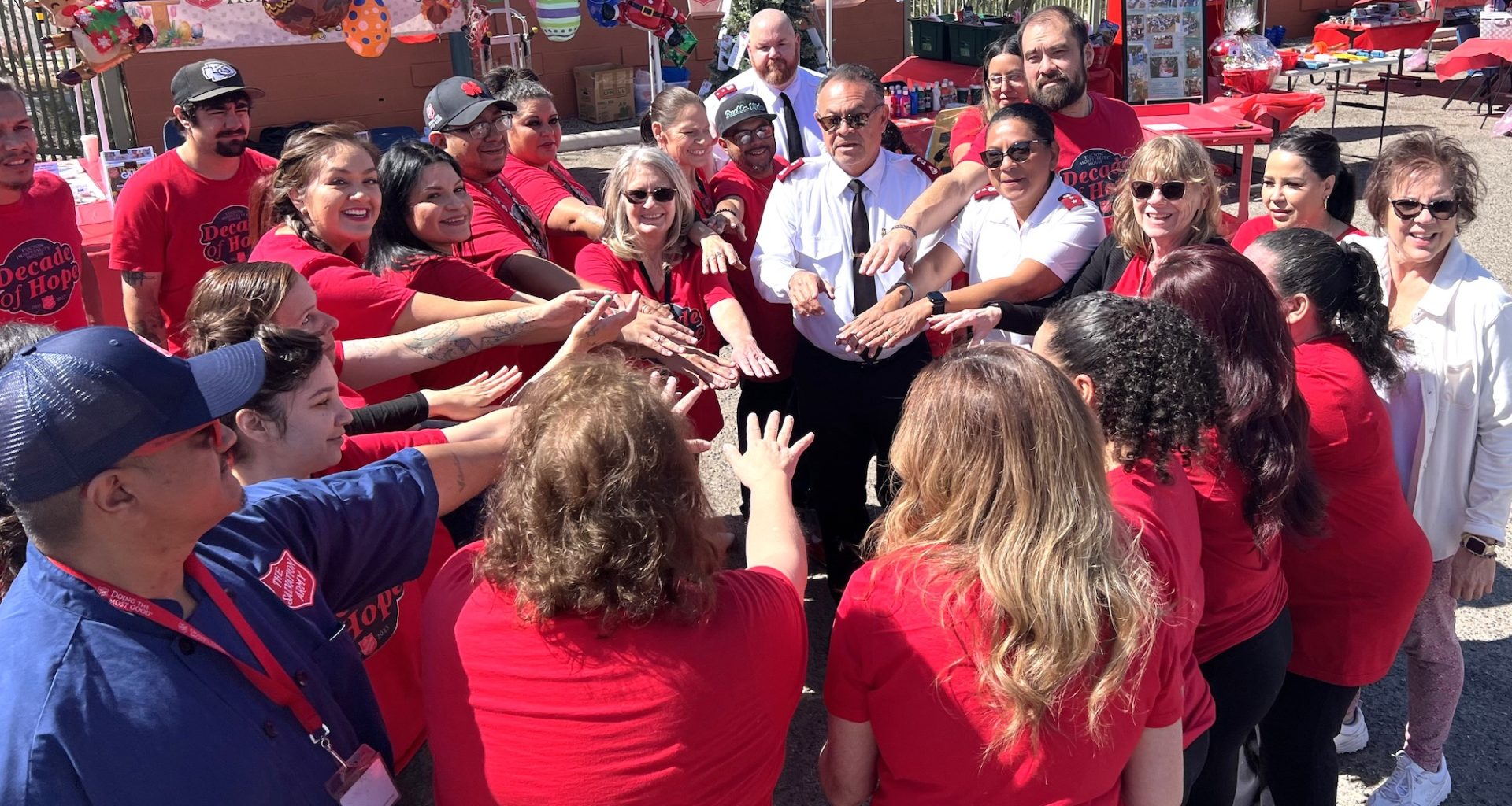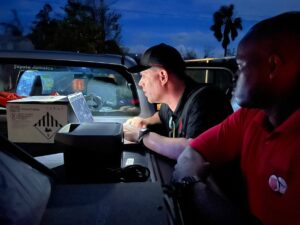Before the Tucson Hospitality House opened its expanded location 10 years ago, it occupied a different space on The Salvation Army’s property. There, the building had seen years of wear and tear—having opened in 1964—and had reached a point where constant repairs no longer could help.
Plus, the face of homelessness was changing in Pima County, and The Salvation Army needed a space for women and families experiencing homelessness, too. Since its start, the Hospitality House’s program focused on serving men.
After securing funds, The Salvation Army broke ground in 2014 on the 104-bed facility with separate, designated spaces for men and women, and four family apartments.
The new building also included space for respite care, people with disabilities and veterans. Additionally, it brought together The Salvation Army’s Tucson social services and administration under the same roof as the Hospitality House.
“We were so excited about bringing everyone together with the prospect of what we could do being together that we always called this ‘paradise,’” said Salvation Army Tucson City Command Business and Human Resources Manager LeeAnn Rogers, who started with The Salvation Army in 1987.
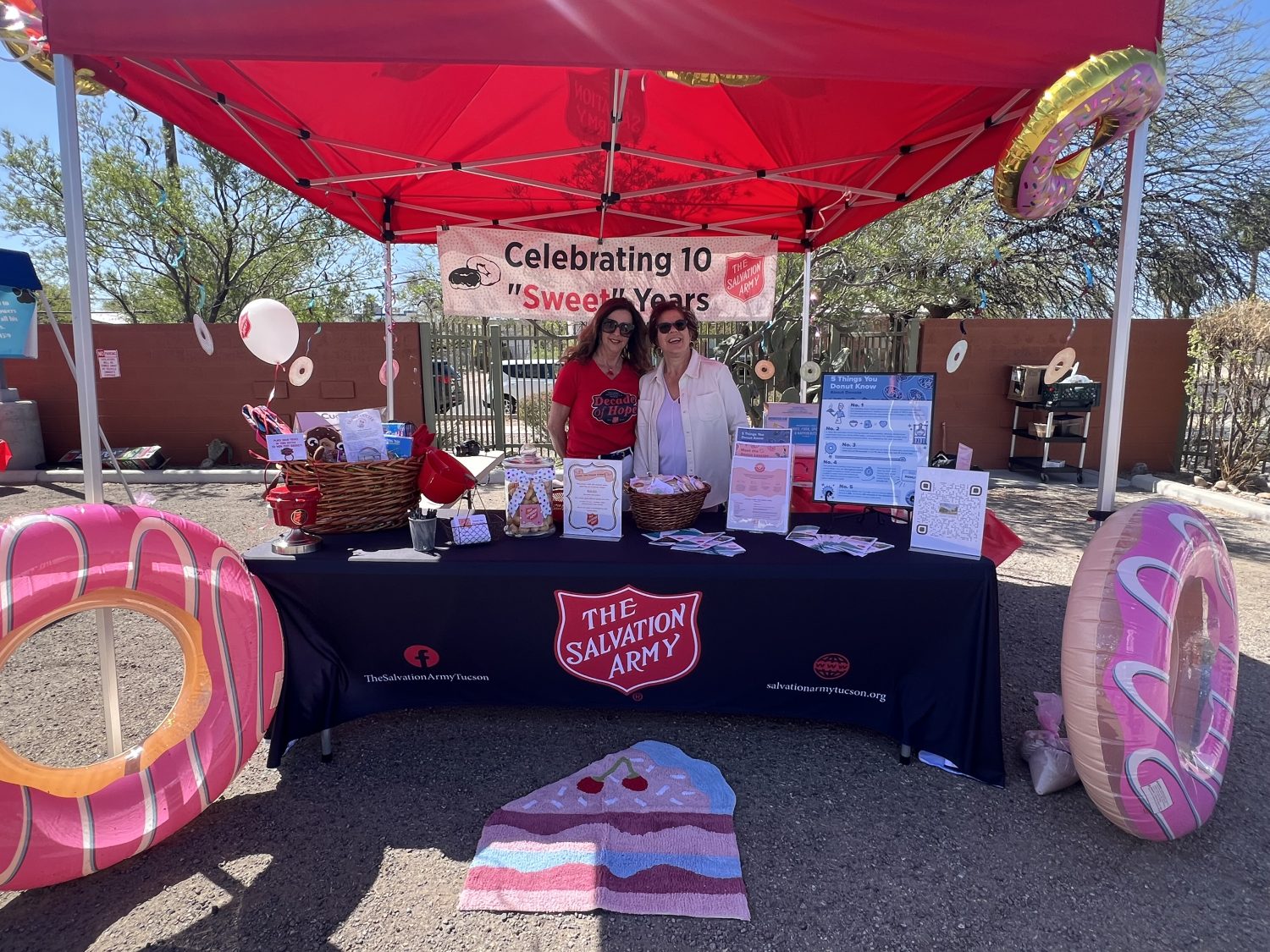
Rogers said as anticipation grew for the new Hospitality House, the team would say things like, “We’re going to paradise” and “Paradise is coming.”
The new building opened in February 2015 and the team finally found “paradise.”
Rogers said that while sometimes it’s tough bringing everyone together, it has worked well—especially when it came to helping those staying in the shelter connect to more resources.
In fact, in the last 10 years, The Salvation Army has assisted 20,696 people through the Hospitality House, providing 397,044 nights of shelter and 853,752 meals. It has also given out 82,784 pieces of clothing.
“Our main goal is just to make sure we take as many people off the street as we can,” said Tucson City Command Shelter Supervisor Eric Hill. The Hospitality House program is a 21-day emergency shelter program that Hill said fluctuates some in length, depending on where an individual is on his or her journey.
“If the clients find jobs, work on their mental health…as long as they’re reaching their goals, we’re going to give them a little extra time,” Hill said. “Every week they’ll meet with their case manager and they’ll say, ‘OK, now I’m working. Now I’m putting money away.’ As long as they are making these goals, we’re willing to keep them here.”
Families staying in the Hospitality House are on a separate schedule with a designated case manager, Hill said, noting they receive support with job searches, making sure their kids are in school, financial literacy and finding housing, among other things.
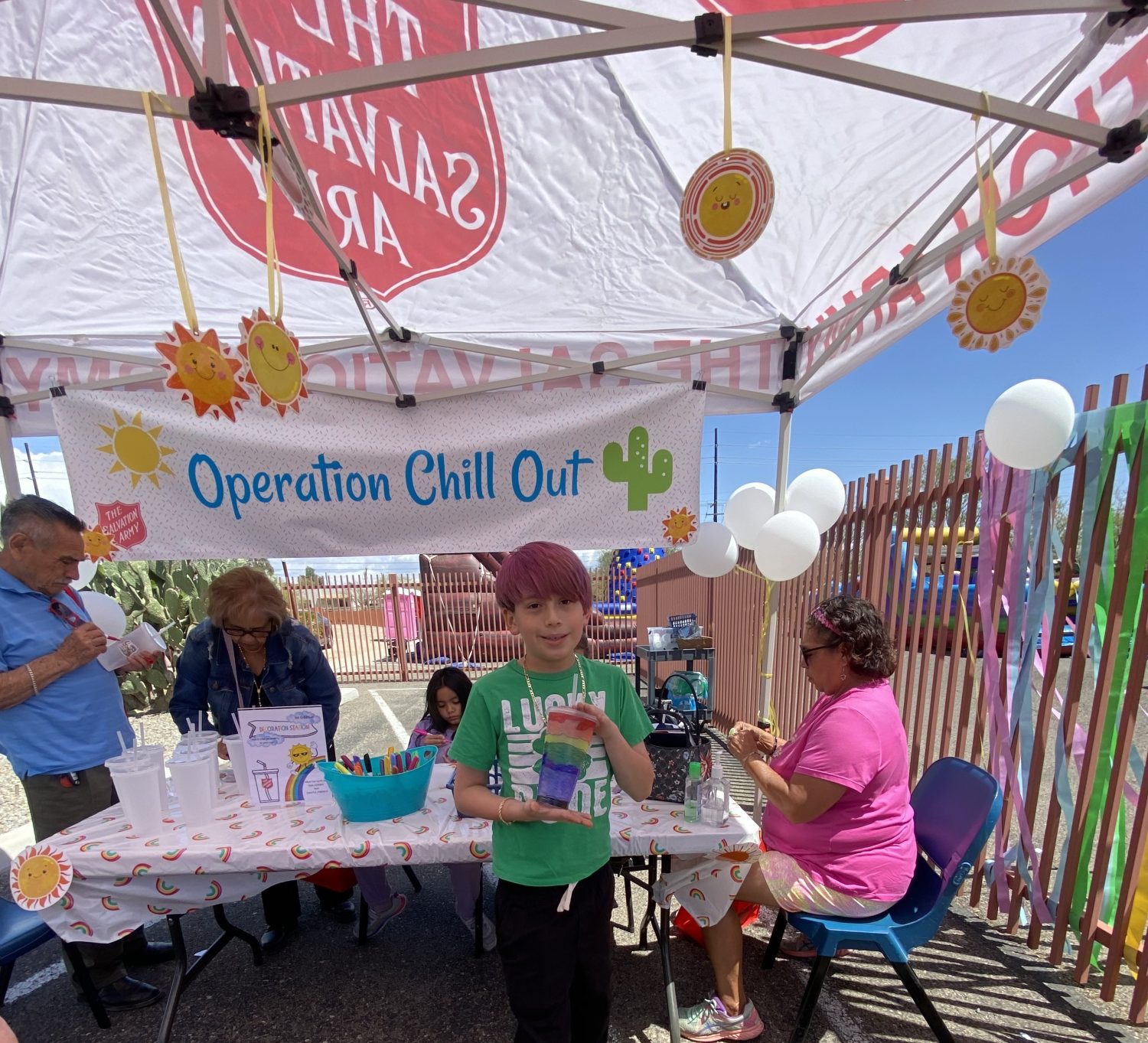
Over the years, the Hospitality House has welcomed many through its doors. A growing population? Older adults. Another? People coming to the shelter with their pets.
In March, Vanessa Rodriguez arrived at the Hospitality House, seeking a place for not only herself, but her 14-year-old dog, Bronx.
Rodriguez, a veteran, left the military to become her mother’s full-time caregiver until her death, and faced housing challenges following.
Eventually, her journey led to the Hospitality House, where she is taking the steps to rebuild her life with Bronx by her side.
“He’s been with me through everything,” she said. “As long as we have each other, we’ll figure it out.”
At the Hospitality House’s Healthy Companions event, both Rodriguez and Bronx received wellness check-ups.
“I loved it,” she said.
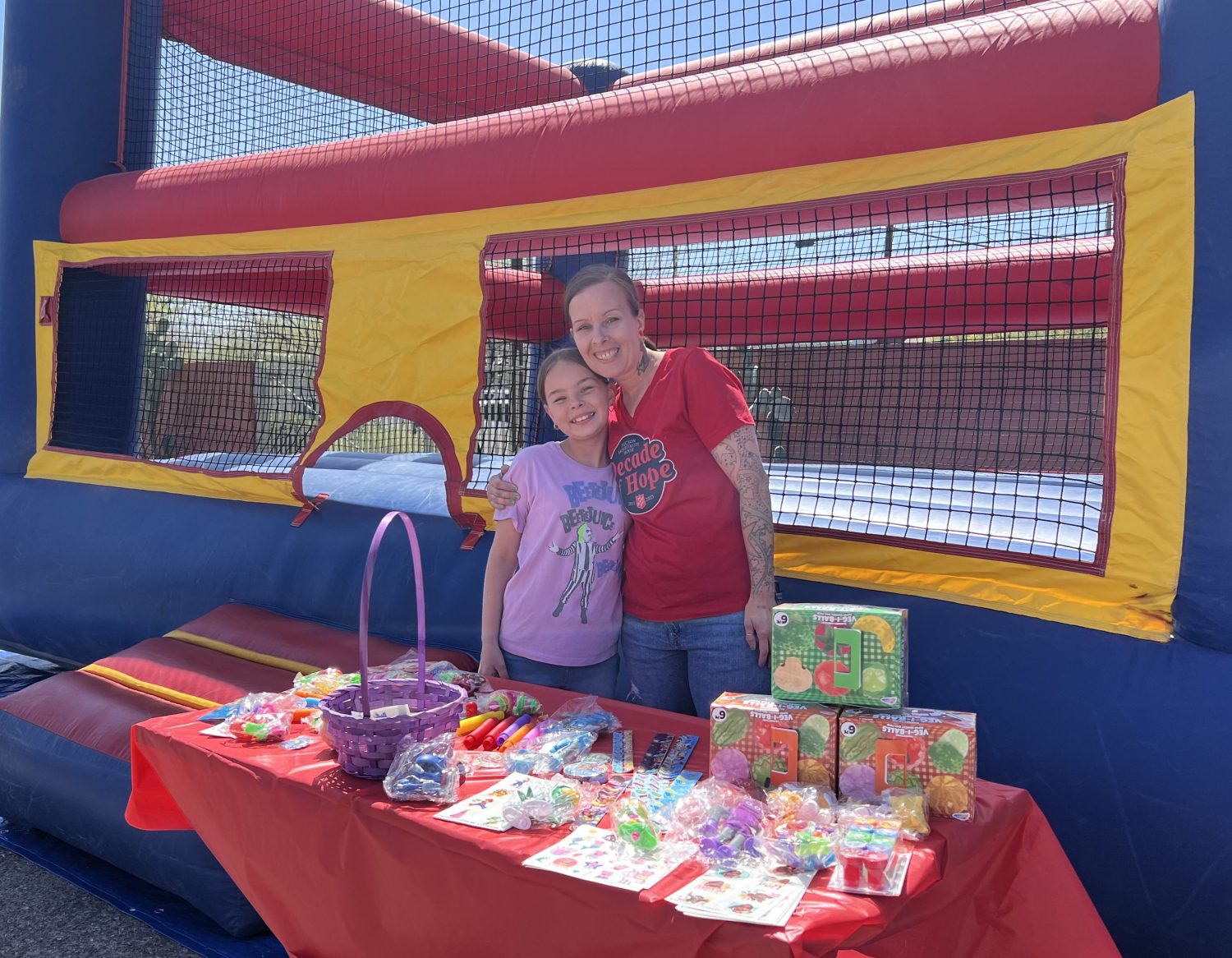
Rodriguez has worked with a case worker to address legal matters, connected with a VA social worker and has worked with the career center to find employment while taking steps toward finding a permanent place to live.
A bonus? Bronx receives dog food, leashes, collars and other supplies to ensure he’s cared for, too.
Barron Avery first arrived at the Hospitality House after he was released from Tucson Medical Center following a medical emergency. He had nowhere else to go—he had traveled to Arizona from Florida for his aunt’s burial.
While he was at the Hospitality House, Avery participated in El Rio Health’s Tuesday wellness services and was able to secure an appointment with a glaucoma specialist at Banner Health. He underwent eye surgery and regained 20/20 vision after having gone blind due to complications from Sickle Cell disease.
“I woke up, and after years of blindness, I looked and saw colors again,” he told Tucson ABC affiliate KGUN9. “I don’t think my quality of life would be where it is right now without this place.”
The Hospitality House is close to the heart of those who work there, too.
“When I wear this shield, to me, it’s like wearing Nike…the best,” said Hill. “I’m proud to work here and proud to wear it.”
Do Good:








